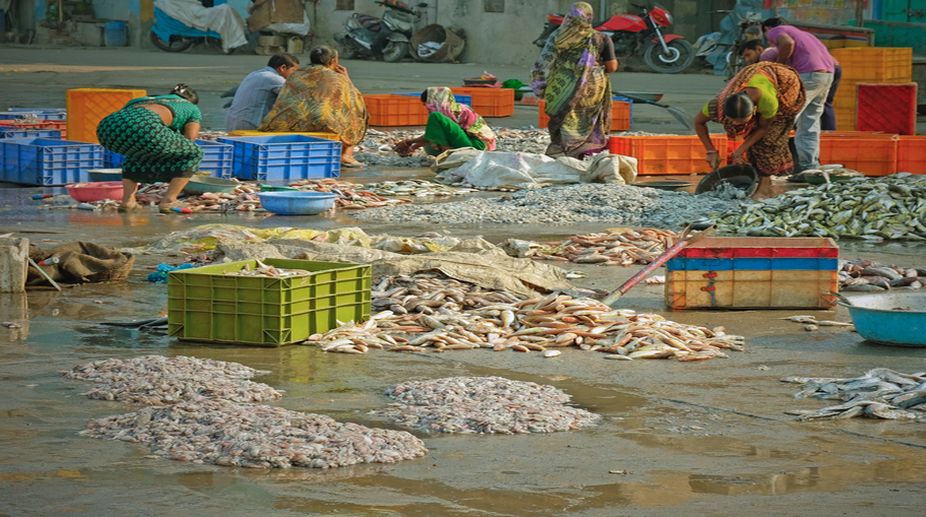Retail inflation for farm and rural labourers marginally up in September
The corresponding figures for August were 5.96 per cent for agricultural labourers and 6.08 per cent for rural labourers, according to the Labour Ministry data.

Representational Image (PHOTO: GETTY IMAGES)
A meeting of think-tanks from various sectors here on Saturday urged Indian industrialists to invest money in mariculture in order to increase fish production in the country.
The meeting was held here at the Central Marine Fisheries Research Institute (CMFRI) to mark 37 years of research, education and development of mariculture, or the branch of aquaculture involving cultivation of marine organisms for food and other products in the open ocean, an enclosed section of the ocean, or in tanks, ponds or raceway filled with seawater, in India.
Indian Council of Agricultural Research's Deputy Director General J.K. Jena asked the industrialists in the sector to come forward and concentrate on mariculture besides their entrepreneurial initiatives in shrimp farming.
Advertisement
"Since the Union Government is deliberating on eradicating poverty in India by 2030, it will promote and encourage all initiatives to increase the production in food and nutrition sectors," he said adding that mariculture was one of the best alternative for ensuring the food security in the country.
The meet proposed to formulate industrial advisory bodies with the participation of scientists and industrialists to accelerate mariculture entrepreneurship in India.
Experts opined that consortium of experts from research, industry, banking was required to elevate the mariculture industry from a mediocre level to corporate level.
Representing the industry, industrialist P. Surendran said mariculture was one of the emerging and prospective sectors for entrepreneurs.
CMFRI Director A. Gopalakrishnan said private-public partnership was need of the hour to boost mariculture in the country.
"We have to emulate the successful mariculture models implemented by the Southeast Asian countries where mariculture has grown significantly catering to the food and economic security of those countries. The Chinese model of developing seafood based products from plant-origin materials such as seaweeds and micro algae can complement our requirements on growing demand for seafood," he said.
Advertisement